Sergio Saponara
Compressed Real Numbers for AI: a case-study using a RISC-V CPU
Sep 11, 2023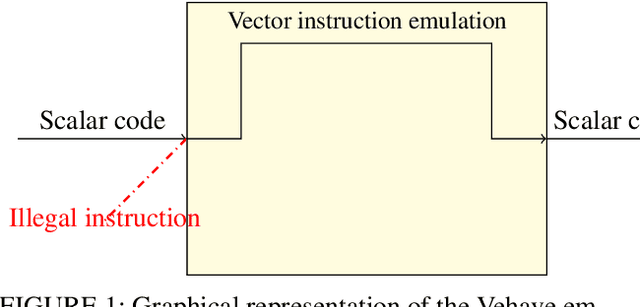
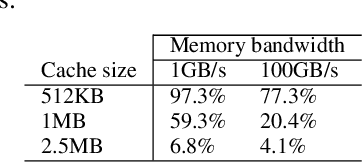
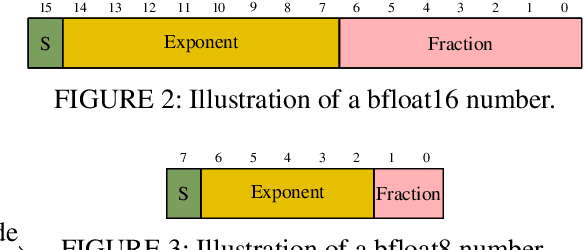
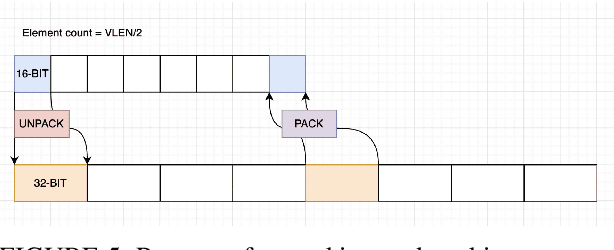
Abstract:As recently demonstrated, Deep Neural Networks (DNN), usually trained using single precision IEEE 754 floating point numbers (binary32), can also work using lower precision. Therefore, 16-bit and 8-bit compressed format have attracted considerable attention. In this paper, we focused on two families of formats that have already achieved interesting results in compressing binary32 numbers in machine learning applications, without sensible degradation of the accuracy: bfloat and posit. Even if 16-bit and 8-bit bfloat/posit are routinely used for reducing the storage of the weights/biases of trained DNNs, the inference still often happens on the 32-bit FPU of the CPU (especially if GPUs are not available). In this paper we propose a way to decompress a tensor of bfloat/posits just before computations, i.e., after the compressed operands have been loaded within the vector registers of a vector capable CPU, in order to save bandwidth usage and increase cache efficiency. Finally, we show the architectural parameters and considerations under which this solution is advantageous with respect to the uncompressed one.
People detection and social distancing classification in smart cities for COVID-19 by using thermal images and deep learning algorithms
Sep 10, 2022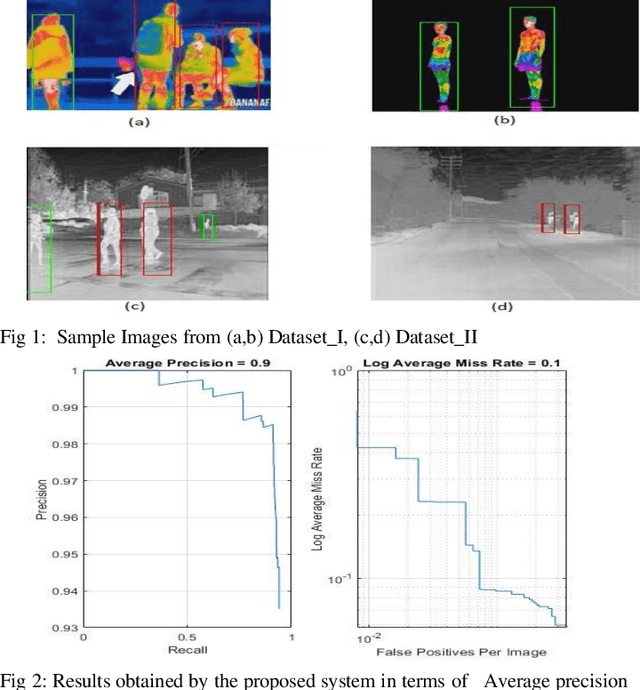
Abstract:COVID-19 is a disease caused by severe respiratory syndrome coronavirus. It was identified in December 2019 in Wuhan, China. It has resulted in an ongoing pandemic that caused infected cases including some deaths. Coronavirus is primarily spread between people during close contact. Motivating to this notion, this research proposes an artificial intelligence system for social distancing classification of persons by using thermal images. By exploiting YOLOv2 (you look at once), a deep learning detection technique is developed for detecting and tracking people in indoor and outdoor scenarios. An algorithm is also implemented for measuring and classifying the distance between persons and automatically check if social distancing rules are respected or not. Hence, this work aims at minimizing the spread of the COVID-19 virus by evaluating if and how persons comply with social distancing rules. The proposed approach is applied to images acquired through thermal cameras, to establish a complete AI system for people tracking, social distancing classification, and body temperature monitoring. The training phase is done with two datasets captured from different thermal cameras. Ground Truth Labeler app is used for labeling the persons in the images. The achieved results show that the proposed method is suitable for the creation of a smart surveillance system in smart cities for people detection, social distancing classification, and body temperature analysis.
 Add to Chrome
Add to Chrome Add to Firefox
Add to Firefox Add to Edge
Add to Edge